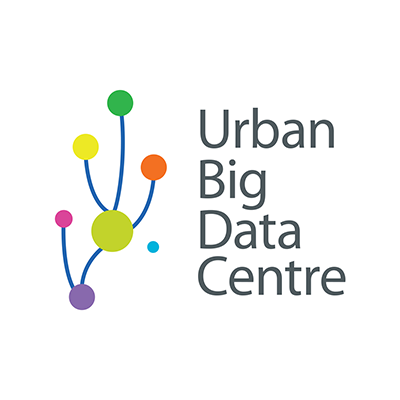Analysis of smart data informs research on housing and homelessness
Data from Zoopla, brought together by the Urban Big Data Centre (UBDC) at the University of Glasgow, has helped to shape two projects on homelessness and affordable housing.
At a glance
Over half a million renting households in the UK have experienced homelessness in recent years
The Homelessness Monitor study tracks homelessness trends and the impact of economic and policy changes
The Housing Requirements for Lower-Income Households study highlights the need for more ambitious housing targets in England and increased investment in affordable housing in Wales
Real-time data from Zoopla helps researchers understand rental affordability and housing supply dynamics
Research from the Urban Big Data Centre (UBDC) and Heriot-Watt University has influenced housing policy across England, Scotland, and Wales

Affordable housing and homelessness are major social issues affecting communities across the UK. The national homelessness charity Crisis has reported that over half a million renting households have experienced homelessness in recent years. The organisation’s frontline services have seen demand soar by 25% across Britain. One service in London saw a rise in the number of people seeking support by 44% in one year.
The government, local authorities, and charities are all exploring ways to tackle the housing crisis. Smart data is also playing a role in informing policy.
Since 2017, researchers from the Urban Big Data Centre (UBDC) at the University of Glasgow have collected daily updates from property listings company Zoopla.
The data, held under licence by UBDC, has helped to shape two research projects on housing overseen by Glen Bramley, Professor of Urban Studies at Heriot-Watt University – the Homelessness Monitor and Housing Requirements for Lower-Income Households.
The Homelessness Monitor
The Homelessness Monitor is a longitudinal study. Its funders are Crisis and the Joseph Rowntree Foundation. It provides analysis of homelessness and the impacts of economic and policy developments across the UK.
The monitor adopts a broad definition of homelessness, considering the impacts of relevant policy and economic changes on the following:
- People sleeping rough
- Single homeless people living in hostels, shelters and temporary accommodation
- Statutorily homeless households – those seeking housing assistance from local authorities on the grounds of being currently or imminently without accommodation
- ‘Hidden homeless’ households – those considered homeless but whose situation is not ‘visible’ either on the streets or in official statistics
Housing Requirements for Lower-Income Households
The Housing Requirements for Lower-Income Households study, supported by Crisis and the National Housing Federation, analysed housing needs among marginalised populations, with a specific focus on low-income households and people experiencing homelessness.
The research provided an assessment of the scale of housing requirements at national level for Wales and Scotland. It also considered national and regional levels in England.
Its findings suggested England required more ambitious targets across the board. They indicated Wales would benefit from more investment in affordable housing.
For Scotland, there were more nuanced findings, indicating that care should be exercised about the total housing volume target because of issues of low demand and housing surplus in some areas.
Subsequent updates have provided insights into housing supply requirements.
Using Zoopla data
By introducing Zoopla data into their modelling, Professor Bramley and his colleagues at the Institute for Social Policy, Housing, Equalities Research (I-SPHERE) have gained a more comprehensive understanding of rental affordability. The property listings offer ‘real-time’ insights into market rent levels and the analysts can use this ‘live’ information alongside official statistics to offer a more complete overall picture of the housing situation.
“I believed that Zoopla listings could give a fuller and more live picture of actual market rent levels and scale of the sector than the official Valuation Office Agency published statistics, so I combined the two sources for these variables within my modelling work.”
Professor Glen Bramley, Heriot-Watt University
Impact of the research
Glen Bramley’s research has been credited with influencing policy changes that could benefit many people facing housing insecurity. A House of Commons Select Committee commended the research, and it has shaped policy decisions in England, Scotland, and Wales.
In 2023, the Chancellor of the Exchequer, Jeremy Hunt, cited the Institute of Fiscal Studies analysis of Zoopla data as influencing his decision-making in his annual Autumn Statement.
“If there is an example of a higher education research group impacting on and shaping policy responses, it is I-SPHERE’s impact on homelessness policy and direction in England, Scotland and Wales…the group has led or been a leading player in key projects that have directly shaped our direction.”
Jon Sparkes, CEO, Crisis
As a company, Zoopla welcomes the use of its data in aiding academic research and helping to inform policy.
“We are pleased to support the Urban Big Data Centre and their partners with further analysis of the housing market to shape and inform better policies at a country and localised level.”
Richard Donnell, Executive Director at Zoopla
About Urban Big Data Centre
The Urban Big Data Centre is supported by the University of Glasgow and Smart Data Research UK. It is a national research hub and data service. Its team champions the use of smart data to inform policymaking and enhance the quality of urban life.
Further reading
- Case study on UBDC website
- Homelessness Monitor for Scotland: The Homelessness Monitor: Scotland 2024 | Crisis UK
- Homelessness Monitor for England: Homelessness Monitor 2022 | England | Crisis UK
- Homelessness Monitor for Wales: The Homelessness Monitor: Wales 2021 | Crisis UK
- Original full report on Housing Requirements: Bramley, G. (2019) Housing Supply Requirements across Great Britain for Low Income Households and Homeless People Research for Crisis and the National Housing Federation: https://doi.org/10.17861/bramley.2019.04
- Updated Housing Requirements full technical report (2024): DOI: 10.17861/c99k-4v55


Smart Data Research UK would love to hear about your research!
Do you have a smart data case study to share? Contact our team at smartdataresearch@ukri.org to showcase your work.
